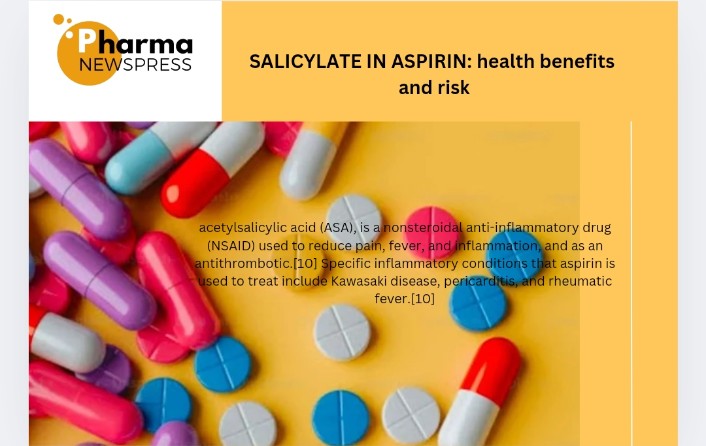1.Salicylates have been available since the early 1900s.
2.Salicylates have been derived from the willow tree bark.
3.The Sumerians were noted to have used remedies derived from the willow tree for pain management as far back as 4000 years ago.
4.Hippocrates used it for managing pain and fever. He even utilized tea brewed from it for pain management during childbirth.
Administration :
Aspirin can be administered via the oral, rectal, and intravenous (IV) route.
It is available in different doses, the lowest being 81 mg, also called a baby aspirin.
Tablet: 325 mg, 500 mg
Delayed-release tablet: 81 mg, 325 mg, 500 mg, 650 mg
Chewable: 81 mg
Suppository: 60 mg, 120 mg, 200 mg, 300 mg, 600 mg
Intravenous: 250 mg, 500 mg
CONTRAINDICATIONS;
People who are allergic to ibuprofen should not take aspirin as there is cross-reactivity. Patients who have asthma should be cautious if they have asthma or known bronchospasm associated with NSAIDs.
Aspirin increases the risk of GI bleeding in patients who already suffer from peptic ulcer disease or gastritis. The risk of bleeding is still present even without these conditions if there is concomitant alcohol consumption or if the patient is on warfarin. Patients who have inborn coagulopathies such as hemophilia should avoid all salicylates. Acquired diathesis, as in the setting of dengue or yellow hemorrhagic fever, should avoid the use of aspirin.
Patients who have glucose-6-phosphate dehydrogenase deficiency are at risk of acute intravascular hemolytic anemia. Many factors can precipitate these hemolytic episodes. Aspirin is one such known cause.
Avoid using aspirin in children who are suffering from a viral infection to avoid reye syndrome.
Toxicity;
Patients who have aspirin toxicity can have a myriad of symptoms. Symptoms of mild toxicity can be but are not limited to tinnitus, dizziness, lethargy, nausea, and vomiting.[15] For more severe toxicity, the signs and symptoms include hyperthermia, tachypnea leading to respiratory alkalosis, high anion gap metabolic acidosis, hypokalemia, hypoglycemia, seizures, coma, and cerebral edema. Death commonly occurs due to cardiopulmonary edema secondary to pulmonary edema.
Enhancing health care:
Aspirin is available over the counter and is commonly involved in pediatric overdoses. The medication should be kept in a closed cabinet away from the reach of children. Given its wide availability, potential adverse effects, therapeutic uses, and potential interactions, all interprofessional healthcare team members should be aware of when patients are using aspirin and monitor and counsel the patient to optimize therapeutic outcomes and prevent any potential adverse effects of salicylic acid. This interprofessional team includes all clinicians (MDs, DOs, NPs, PAs), nurses, and pharmacists, all of whom need to have access to the same patient information and coordinate their activities, and openly share information so the patient receives the best possible healthcare, including how aspirin is used.


